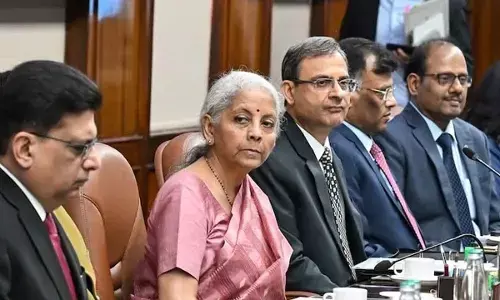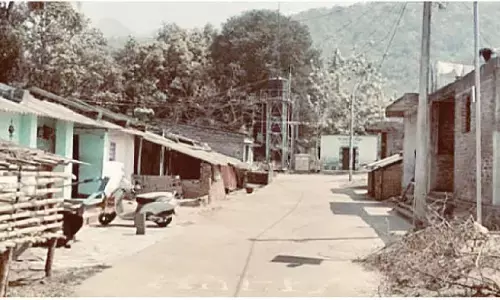Cashless Claim in Health Insurance: A Concise Guide

Welcome to the world of cashless claims in health insurance - a realm where convenience and peace of mind meet to transform your healthcare experience.
India has a mixed healthcare delivery system that includes both public and private providers. However, the public health system has for long remained underfunded and understaffed and often fails to provide adequate and quality services to the population. As a result, many people rely on the private sector for their health needs, which can be expensive and unregulated. According to the Ministry of Health and Family Welfare, Out-of-Pocket Expenditure (OOPE) in total health expenditure stood at 47.1% in 2019-20, which means that people had to pay for most of their healthcare costs from their own pockets, leading to financial hardship and impoverishment, especially for the poor and vulnerable sections of society.
Even the people who had health insurance policies also had to face the burden of arranging funds for their treatment in case of a medical emergency. They had to pay the hospital bills upfront and then file for reimbursement from their insurance company, which could take a long time and involve a lot of paperwork. This could cause stress and anxiety for the patients and their families and affect their recovery process. But what if you were told that the prospect of medical treatment without the immediate strain on your finances is no longer a distant dream?
Welcome to the world of cashless claims in health insurance - a realm where convenience and peace of mind meet to transform your healthcare experience. It is now easier than ever to bid farewell to the burden of upfront payments and embark on a journey where your well-being takes centre stage and your financial stability remains intact. Let’s explore the myriad benefits and intricacies of cashless claims, empowering you to make informed decisions about your health and finances with the help of Mr Amrit Singh, Co-Founder and CRO of Loop. Loop is India’s first Health Assurance company.
Mr Amrit Singh, Co-Founder and CRO, Loop
What Is A Cashless Claim In Health Insurance?
Before jumping onto the numerous benefits that cashless insurance claims offer, it is important to understand what exactly they are. A cashless claim in health insurance is a facility provided by insurance companies that allows policyholders to receive medical treatment at network hospitals or healthcare providers without having to make upfront payments. When you opt for a cashless claim, the insurance company directly settles the medical bills with the hospital or healthcare provider up to the coverage limits and as per the terms and conditions of the policy.
How Does Cashless Claim Work?The provision of cashless claims in insurance has been designed while keeping the convenience of the policyholders in mind, which is why the procedure of making a cashless claim is fairly simple. Cashless claims work in the following fashion:
1. Policy purchaseThe policyholder purchases a health insurance policy from an insurance company, which specifies the coverage details, policy terms, and conditions.
2. Network hospitals
Insurance companies have a network of hospitals or healthcare providers with whom they have a tie-up. These network hospitals are authorized to offer cashless claims to policyholders.
3. Policyholder's responsibility
It is essential for the policyholder to be aware of the network hospitals associated with their insurance company. This information is usually provided by the insurer through their website, customer service, or policy documents.
4. Pre-authorization process
Before availing of cashless treatment at a network hospital, the policyholder needs to go through a pre-authorization process. Here's how it generally works:
a. Hospitalization: In case of planned hospitalization, the policyholder needs to inform the insurance company in advance. This can be done through a pre-authorization form available on the insurer's website or by contacting their customer service.
b. Intimation: The policyholder informs the insurance company about the details of the hospitalization, including the date, hospital, doctor, and nature of the procedure.
c. Documentation: The policyholder is required to submit relevant documents such as the pre-authorization form, policy details, identification proof, medical reports, doctor's prescriptions, and any other supporting documents as requested by the insurance company.
5. Verification and approval
The insurance company evaluates the pre-authorization request and verifies the policy coverage. They assess the medical necessity of the treatment, ensuring it falls within the policy terms and conditions. This process may involve contacting the hospital or healthcare provider for further information or clarifications.
6. Cashless claim approval
If the pre-authorization request is approved, the insurance company provides a cashless claim approval letter or an authorization code to the policyholder.
7. Hospitalization and treatment
With the cashless claim approval, the policyholder can proceed with the planned medical treatment at the network hospital. The hospital coordinates with the insurance company to ensure the cashless settlement.
8. Direct Settlement
After the treatment, the hospital sends the medical bills and necessary documents to the insurance company for reimbursement. The insurance company reviews the bills and settles the payment directly with the hospital, up to the approved coverage limits mentioned in the policy.
9. Policyholder's responsibility
It is important to note that while the insurance company covers the approved expenses, any non-covered or extra expenses not included in the policy terms, such as deductibles, co-pays, or non-medical expenses, are the responsibility of the policyholder. These expenses need to be settled directly with the hospital.
10. Reconciliation and disputes
Sometimes, there might be discrepancies or disputes between the hospital and the insurance company regarding the settlement amount or coverage. These issues are typically resolved through a reconciliation process between the involved parties.
It is worth mentioning that the cashless claim facility is subject to the terms and conditions of the health insurance policy. It is important for policyholders to thoroughly understand their policy coverage, network hospitals, and the process involved to ensure a smooth and hassle-free experience when availing cashless health insurance claims. Advantages Of Cashless Claim In Health Insurance
Cashless claims in health insurance offer several advantages to policyholders. Here are some key benefits:
1. Convenience
Cashless claims provide a high level of convenience to policyholders. They eliminate the need for policyholders to pay for medical expenses upfront and go through the process of reimbursement. Instead, policyholders can avail treatment at network hospitals without worrying about arranging funds immediately.
2. Immediate access to treatment
With cashless claims, policyholders can receive immediate access to necessary medical treatment. They do not have to delay or postpone treatment due to financial constraints, as the insurance company settles the bills directly with the hospital.
3. Reduced financial burden
Cashless claims significantly reduce the financial burden on policyholders. Hospitalization and medical treatments can be expensive, and paying upfront for such expenses can strain one's finances. Cashless claims ensure that policyholders can focus on their health without worrying about immediate payment.
4. Wide network of hospitals
Insurance companies maintain a network of hospitals and healthcare providers. These network hospitals are authorized to provide cashless claims. This network is usually extensive, offering policyholders a wide range of choices and access to quality healthcare facilities.
5. Streamlined process
Cashless claims follow a streamlined process, making it easier for policyholders to avail themselves of medical treatment. The pre-authorization process ensures that the insurance company reviews the treatment plan and provides approval, reducing the chances of claim rejection or disputes later on.
6. Reduced paperwork
Cashless claims involve less paperwork compared to reimbursement claims. The hospital directly coordinates with the insurance company for billing and settlement, reducing the administrative burden on the policyholder.
7. Cash flow management
Cashless claims help policyholders manage their cash flow more effectively. Since they are not required to pay upfront, policyholders can allocate their funds for other essential needs or emergencies.
8. Quality assurance
Insurance companies typically have a vetting process for network hospitals, ensuring that they meet specific quality standards. By opting for cashless claims at network hospitals, policyholders can have confidence in the quality of healthcare services they receive.
9. Emergency assistance
In case of emergencies, cashless claims provide quick access to medical treatment without delay. This is particularly crucial during critical situations when immediate care is necessary.
10. Transparency and control
Cashless claims offer transparency and control over healthcare expenses. Policyholders can easily track the treatment costs and services covered under their policy, enabling better financial planning and decision-making.
However, it is important to note that the specific advantages may vary depending on the terms and conditions of the health insurance policy and the network hospitals associated with the insurance company. Policyholders should thoroughly understand their policy coverage and the cashless claim process to maximize the benefits offered by their health insurance plan.
Hassle-Free Care Is Here
At a time when quality healthcare has grown into a necessity for all, don't let financial worries hinder your path to better health. Take charge of your well-being by embracing the convenience and peace of mind offered by cashless claims. With a simple pre-authorization process, you can access immediate medical treatment without upfront payments. With cashless insurance claims, paperwork headaches are a thing of the past, paving way for more streamlined healthcare experiences. It's time to unlock the power of cashless claims and experience a world where health and finances exist in complete harmony.
So, why wait? Take action now and make cashless claims an integral part of your health insurance journey. Your well-being deserves the convenience and financial security that cashless claims provide. Seize the opportunity and embark on a healthier, worry-free future today! Tags: Healthcare, Cashless Claims, Health insurance, Healthcare Policy, Loop Health,








